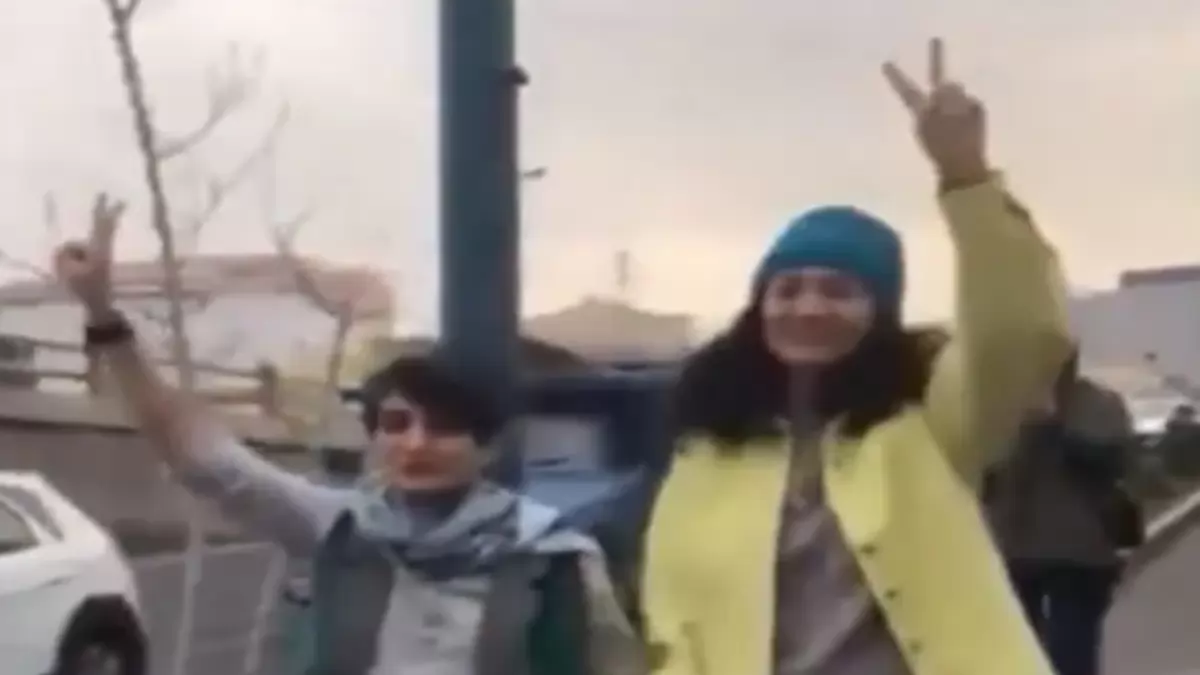
Screengrab
Mahsa Amini murder case: Iran's two female journalists, Niloofar Hamedi and Elaheh Mohammadi, who gained prominence for exposing the Mahsa Amini murder case, are now entangled in a new legal battle. Following their temporary release from prison, the journalists face fresh charges for appearing without a hijab, according to reports.
Hamedi and Mohammadi secured temporary release from prison by posting substantial bails, each amounting to approximately $200,000, as reported by Iran International. However, their celebratory moments after release, captured in a video shared on social media, led to a new legal case against them.
After 16 months of unjust imprisonment, heroic journalists #ElahehMohammadi & #NiloofarHamedi who broke the story of #MahsaAmini’s murder in custody that ignited Iran’s #WomanLifeFreedom uprising, have been released on heavy bail while they appeal their lengthy sentences. pic.twitter.com/nmOOoLizbd
— Nazanin Boniadi (@NazaninBoniadi) January 14, 2024
Mohammadi faces a 12-year sentence, with 6 years executable, while Hamedi's sentence extends to 13 years, with 7 years to be executed, as per Iran International's report. The charges stem from the journalists appearing without a hijab in the online footage.
Hamedi's arrest in September 2022 followed her reporting on Amini's critical condition in the hospital, shedding light on serious head injuries sustained in hijab police custody. Amini's subsequent death triggered nationwide protests. Mohammadi, a reporter for Ham-Mihan newspaper, was arrested a week later while covering Amini's funeral in Saqqez.
Accused of informing about Amini's death, both journalists faced pressure from security entities, contributing to their legal woes.
Mahsa Amini was detained for violating rules mandating the wearing of a hijab. Although Iran's state coroner attributed her death to pre-existing medical conditions, a UN human rights expert contested this claim, suggesting evidence pointed to her dying "as a result of beatings" by morality police.
Hamedi, a Shargh newspaper journalist, received a conviction for collaborating with the US government (7 years), conspiracy against national security (5 years), and anti-regime propaganda (1 year). Similarly, Mohammadi received a 6-year sentence for collaborating with the US, 5 years for conspiracy against national security, and 1 year for anti-system propaganda.
Both journalists face additional restrictions, including a two-year prohibition on party and political group memberships, online activities, and media engagement.
A Complex Legal Saga: The journalists, hailed for exposing the Amini murder case, now face a new legal challenge, adding complexity to their already tumultuous journey through the Iranian legal system.





Copyright © 2025 Top Indian News
